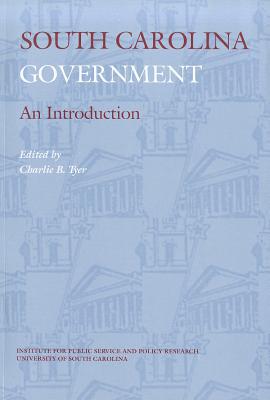Editor: Charlie B. Tyer
Publisher: University of South Carolina Press
Book Review by: Artha Hemrajani
To first give you an economic overview of South Carolina, the Palmetto State, its state gross domestic product (GDP) for 2009, the latest year for which data is available on Wikipedia, was about $164 million. It ranked 27th among the states, contributing 1.13 percent to the national GDP of $14.65 trillion. With a state population of about 4.6 million, each resident’s income averaged $35,717 for that year.
The per capita ranking of South Carolina was 48 among a list of 51 states in that article.
The highest per capita income was in Washington D.C. where the average resident made $174,500 that year. The state with the lowest per capita income was Mississippi where the average resident made $32,967, or less than a fifth of what the average D.C. resident earned.
The current governor of South Carolina is a Republican, Nikki Haley, born of Indian parents with the Indian name of Nimrata Kaur Randhawa. She served as a member of the South Carolina House of Representatives from 2005 to 2010.
Charlie B. Tyer was the project director of this undertaking and author of the first chapter of this book. He was assisted by the Institute for Public Service and Policy Research, a public service division of the College of Liberal Arts at the University of South Carolina.
The Institute focuses on identifying effective solutions to public policy problems facing the state of South Carolina and its communities and meeting the training and technical assistance needs of state government and local governments.
It draws upon the considerable resources and expertise of the USC in service to the state and society for the purposes of cultural enrichment, dissemination of knowledge and enhancement of the overall quality of life in South Carolina.
Eight distinguished people from the academic and research communities mainly in South and North Carolina contributed material for this study on the structure and functions of the South Carolina government.
Fourteen chapters on the various parts of state, county and municipal governments and its different functions comprise this 384-page book. At the end of each chapter, a conclusion is provided, along with a list of Notes and a list of References for further reading and research. The chapters are well organized with topics so you can quickly go to the page of the topic and find the information you are looking for.
The chapters are organized in groupings. The first four chapters deal with the structure and functions of the state government, municipal governments, county governments, and ‘special purpose’ governments in that state.
The next five chapters cover:
- Local government finance in the state: e.g. government finance officials, budget process and main revenue sources
- Planning: history, definition, legal and political frameworks, state and local government planning and contemporary planning issues
- The state’s criminal justice system: law enforcement, prosecution and defense, punishment, and current issues
- The state legislature: historical development, organization, functions, the legislative process and legislative oversight
- The governor: history, powers, roles and responsibilities
Chapters 10 through 14 cover:
- The state’s judicial system: brief history of court organization and management, the judicial system today: courts and judges, and ‘where things stand’ on ethics, financial interest, level of judicial involvement in policy decisions and legislative involvement in judicial affairs
- Human resource management in South Carolina: history, the Federal Merit System and its flaws, the South Carolina state context, human resource management in state and municipal governments, the legal landscape, unions and collective bargaining, and observations
- State budgeting and finance: actors and institutions, the South Carolina budget process
- Interest groups in South Carolina: targets of interest group activity and the tools of influence, regulation and reform, overall power of interest groups, power and individual groups
- Parties and election in South Carolina: the legal context, and party development in South Carolina: an assessment.







